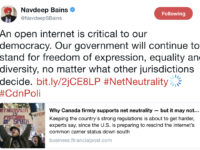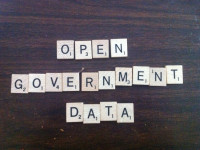Bill C-27, Canada’s proposed privacy reform and AI regulation bill, continues to slowly work its way through the committee process at the House of Commons with the clause-by-clause review of the AI portion of the bill still weeks or even months away. Recently a group of nearly 60 leading civil society organizations, corporations, experts and academics released an open letter calling on the government to separate the bill into two.
Andrew Clement has been an important voice in that group as he tracked not only the committee hearings but also dug into the consultation process surrounding the bill. Clement is a Professor Emeritus in the Faculty of Information at the University of Toronto, where he coordinates the Information Policy Research Program and co-founded the Identity Privacy and Security Institute (IPSI). He joins the Law Bytes podcast to talk about AI regulation in Canada, concerns with the bill, and offers insights into the legislative and consultative process.









